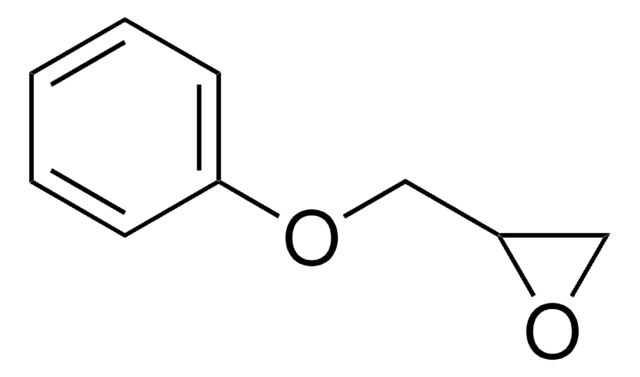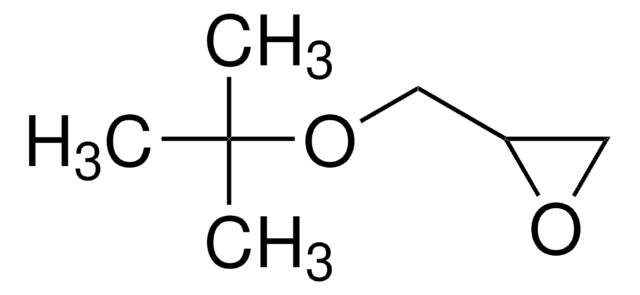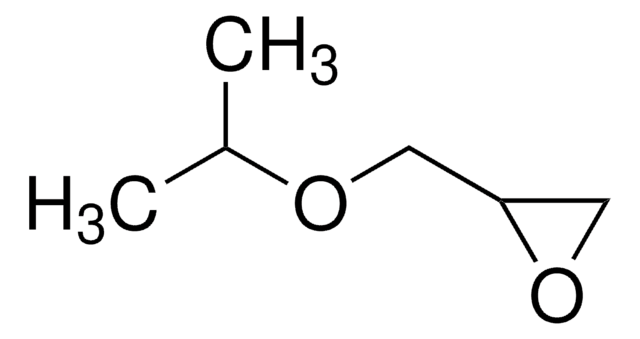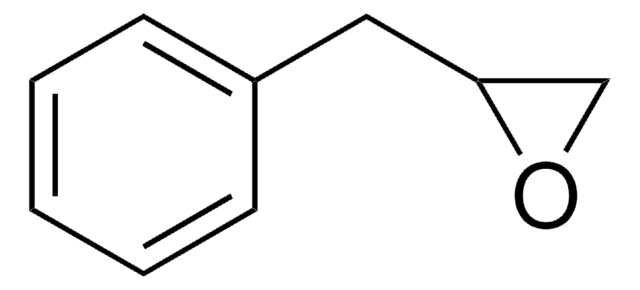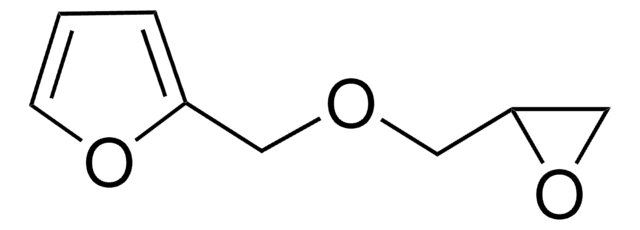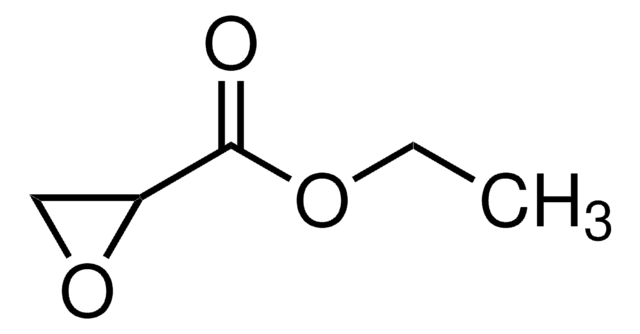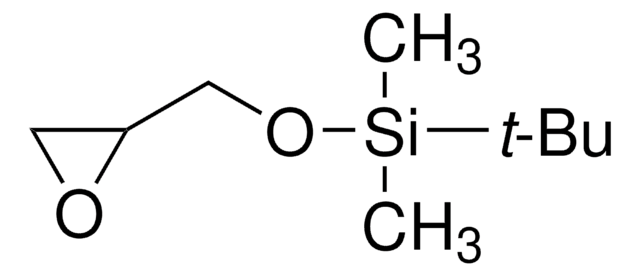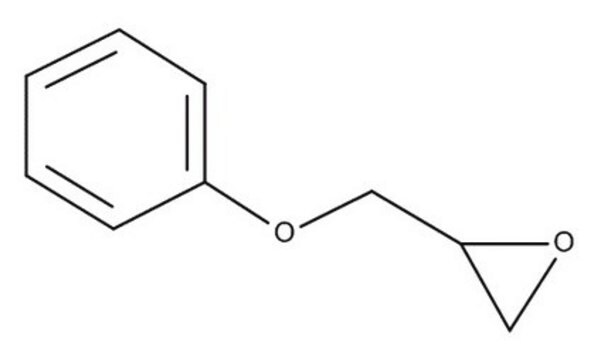469785
Benzyl glycidyl ether
99%
Synonym(s):
(Benzyloxymethyl)oxirane, (±)-O-Benzylglycidol, 1-(Benzyloxy)-2,3-epoxypropane, 2-[(Phenylmethoxy)methyl]oxirane, 2-[[(Benzyloxy)methyl]oxy]oxirane, 3-(Benzyloxy)-1,2-epoxypropane, Glycidyl benzyl ether, [(Phenylmethoxy)methyl]oxirane
About This Item
Recommended Products
Quality Level
Assay
99%
refractive index
n20/D 1.5170 (lit.)
bp
70-73 °C/11 mmHg (lit.)
density
1.077 g/mL at 25 °C (lit.)
functional group
ether
phenyl
storage temp.
2-8°C
SMILES string
C(OCc1ccccc1)C2CO2
InChI
1S/C10H12O2/c1-2-4-9(5-3-1)6-11-7-10-8-12-10/h1-5,10H,6-8H2
InChI key
QNYBOILAKBSWFG-UHFFFAOYSA-N
General description
Signal Word
Warning
Hazard Statements
Precautionary Statements
Hazard Classifications
Eye Irrit. 2 - Skin Irrit. 2 - STOT SE 3
Target Organs
Respiratory system
Storage Class Code
10 - Combustible liquids
WGK
WGK 3
Flash Point(F)
235.4 °F - closed cup
Flash Point(C)
113 °C - closed cup
Personal Protective Equipment
Choose from one of the most recent versions:
Already Own This Product?
Find documentation for the products that you have recently purchased in the Document Library.
Customers Also Viewed
Our team of scientists has experience in all areas of research including Life Science, Material Science, Chemical Synthesis, Chromatography, Analytical and many others.
Contact Technical Service